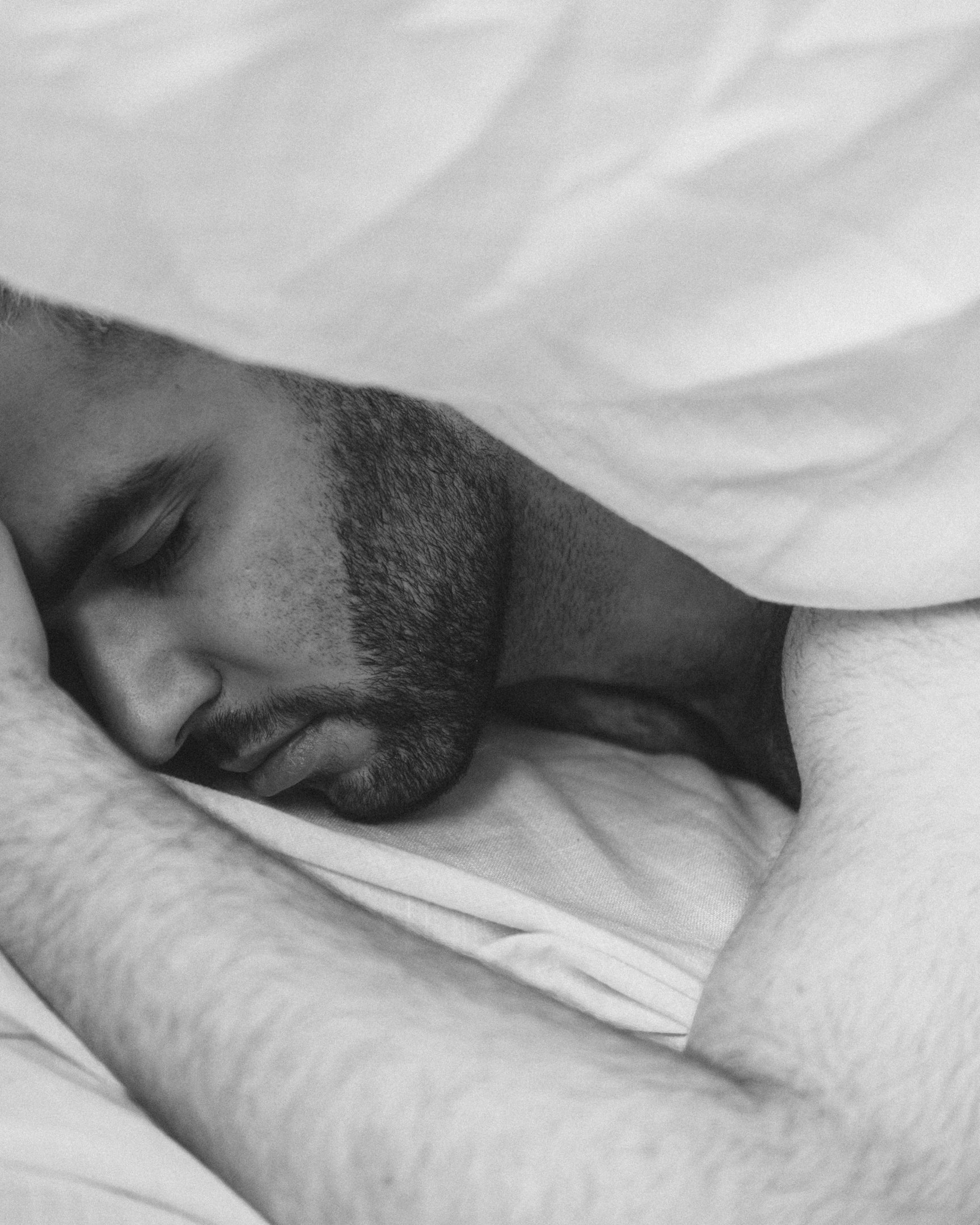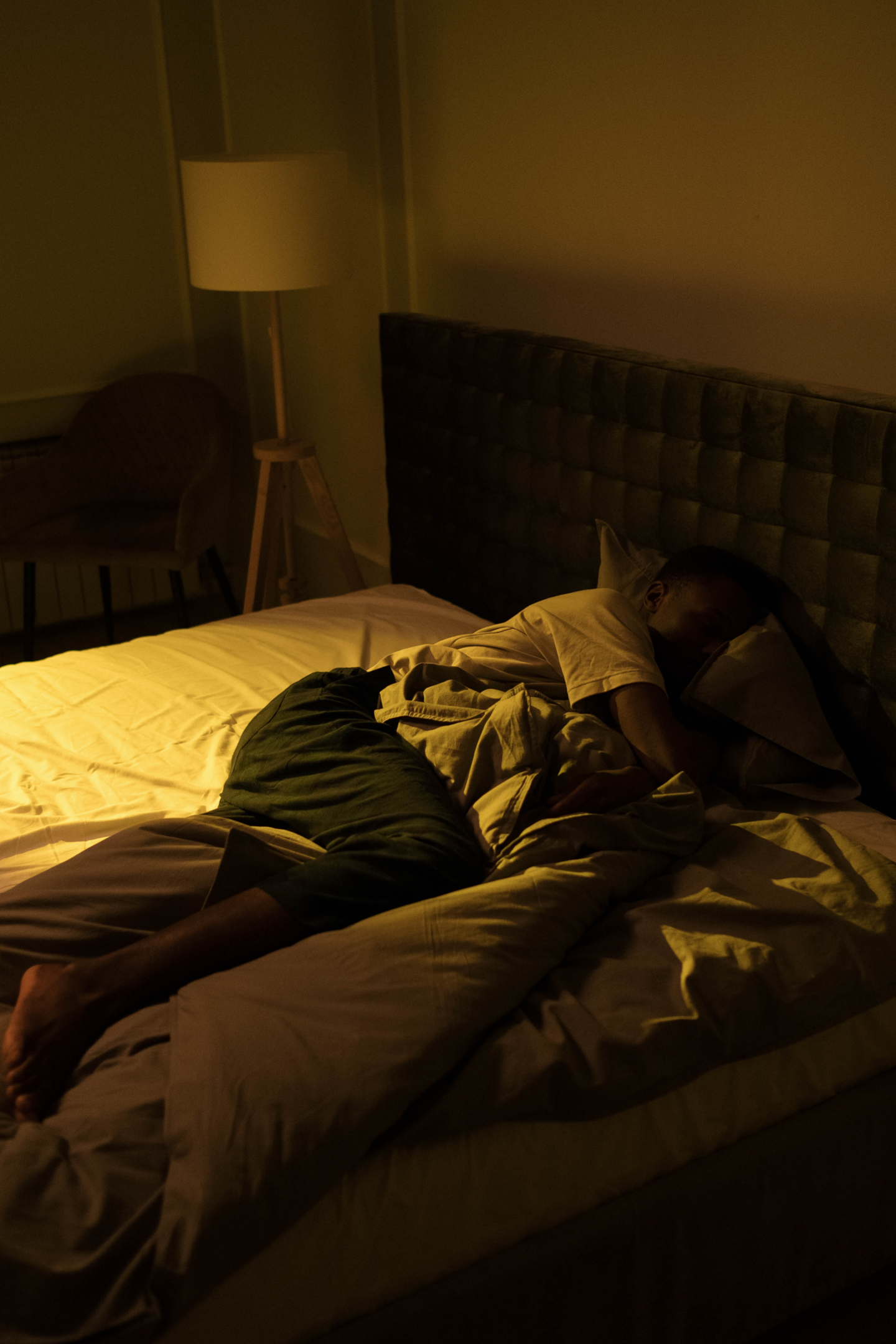
How ZMA Can Boost Your Immune System
Wondering how to boost your immune defences and fight against illness? Discover the science of ZMA and how it can help your immune system.


Sleep is a fundamental aspect of our lives, occupying roughly one-third of our time. It plays a crucial role in maintaining our overall health and well-being.
Unfortunately, many people underestimate the importance of a good night’s sleep and fail to recognise the negative impact of poor sleep habits on their physical and mental health.
In this blog, we will discuss the significance of sleep and recovery, the consequences of poor sleep quality and inadequate recovery, and seven common mistakes that can hinder your nighttime sleep and overall health.
Sleep is a crucial component of maintaining overall health and well-being. Some key benefits of quality sleep include:
By prioritising sleep, we can support our bodies in recovering from daily stressors and promote optimal health and vitality.
The hormone melatonin, and others secreted from the hypothalamic–pituitary–adrenal (HPA) axis, modulate the sleep–wake cycle. As such, the dysfunction of these can disrupt your sleeping cycle and lead to a degradation of health.
Poor sleep quality can lead to a wide range of negative consequences, including:
Recognising and addressing the factors that contribute to poor sleep and inadequate recovery is essential for optimising overall health and well-being. In this blog, we will explore seven common mistakes that may be sabotaging your nighttime sleep and recovery, as well as provide practical tips for improving sleep quality and promoting restorative rest.
By understanding and rectifying these mistakes, you can work towards achieving the quality sleep your body needs to function at its best, ultimately enhancing your overall health and vitality.

Establishing and maintaining a regular sleep schedule is essential for optimising sleep quality and ensuring that your body gets the rest it needs to recover. A consistent sleep schedule helps regulate your internal sleep-wake cycle, also known as the circadian rhythm, which governs various physiological processes such as body temperature, hormone release, and your metabolism.
By going to bed and waking up at the same time every day, you train your body to follow a consistent pattern, making it easier to fall asleep at night and wake up feeling refreshed in the morning.
Adhering to a regular sleep schedule also helps prevent the accumulation of sleep debt, which occurs when you consistently get less sleep than your body needs. Over time, sleep debt can lead to chronic fatigue, reduced cognitive function, and an increased risk of health issues, ultimately affecting your overall quality of life.
An inconsistent sleep schedule disrupts your body’s internal clock, making it difficult to maintain a healthy sleep-wake cycle. This can lead to irregular sleep patterns, difficulty falling asleep, and frequent awakenings throughout the night.
As a result, you may experience daytime sleepiness, mood swings, and reduced cognitive function, which can impact your ability to concentrate, make decisions, and engage in daily activities.
Moreover, when your sleep schedule is inconsistent, your body may struggle to regulate important physiological processes such as hormone release and body temperature. This can impair your body’s ability to repair and recover from the physical and mental stressors of the day, potentially leading to reduced athletic performance, a weakened immune system, and an increased risk of injury.

Blue light exposure, particularly before bedtime, can have a significant impact on sleep quality and recovery. Blue light is known to interfere with the body’s internal clock, which governs various bodily processes, including sleep-wake cycles, hormone release, and metabolism.
One critical hormone affected by blue light exposure is melatonin, a hormone produced in the brain that helps regulate sleep by making you feel sleepy when it is time to rest.
Excessive exposure to blue light in the evening can suppress the production of this hormone, making it difficult for you to fall asleep and stay asleep throughout the night. Consequently, poor sleep quality can have negative effects on overall health, including reduced cognitive function, impaired immune response, and hormonal imbalances.
Blue light is emitted naturally by the sun and helps regulate our sleep-wake cycles during daylight hours. However, artificial sources of blue light can disrupt our natural sleep patterns. These sources include electronic devices such as smartphones, tablets, computers, and televisions, as well as energy-efficient LED and fluorescent lighting.
Using electronic devices before bedtime can interfere with your body’s production of melatonin, delaying the onset of sleep and reducing sleep quality. Additionally, engaging with digital content on these devices, such as social media, news, or work-related tasks, can stimulate the brain and make it more difficult to relax and transition into a restful state.
To minimise the impact of blue light on your sleep and recovery, consider implementing the following strategies:
By being mindful of your blue light exposure in the evening and taking steps to reduce it, you can support your body’s natural sleep-wake cycles, promote the production of melatonin, and improve overall sleep quality and recovery. This, in turn, can have a positive impact on various aspects of your health, ensuring that you wake up feeling refreshed and rejuvenated each day.

Caffeine and alcohol are two substances that many people consume regularly without realising their potential impact on sleep quality and recovery.
Caffeine, a stimulant found in coffee, tea, and energy drinks, can help increase focus and temporarily counteract the effects of sleep deprivation. However, excessive caffeine intake can lead to poor sleep by disrupting the body’s natural sleep-wake cycle, overstimulating the adrenal glands, and making it difficult to fall asleep or stay asleep throughout the night.
On the other hand, alcohol, a depressant, can initially make you feel drowsy and help you fall asleep faster. However, alcohol can disrupt your sleep architecture, preventing you from reaching the deeper stages of sleep necessary for quality rest and recovery. Additionally, alcohol can lead to frequent awakenings during the night and exacerbate sleep disorders such as sleep apnea and snoring.
When it comes to caffeine and alcohol consumption, moderation is key to ensuring that they do not negatively impact your sleep quality and recovery. For most adults, a safe level of caffeine consumption is generally considered to be around 400 milligrams per day, equivalent to about four 8-ounce cups of brewed coffee. However, individual tolerances can vary, and some people may be more sensitive to the effects of caffeine than others.
For alcohol, moderate consumption is typically defined as up to one drink per day for women and up to two drinks per day for men. It is important to note that individual tolerances to alcohol can also vary, and even moderate consumption can negatively affect sleep quality for some people.
By being mindful of your caffeine and alcohol consumption and understanding the potential impact these substances can have on sleep quality and recovery, you can make informed decisions to support restful and restorative sleep.

In today’s fast-paced world, it can be challenging to wind down and transition from our busy schedules to a restful state conducive to sleep. A relaxing bedtime routine is essential in signaling to your body and mind that it is time to prepare for sleep.
By following a consistent routine, you can create an association between these activities and sleep, making it easier to fall asleep and improve overall sleep quality, which is vital for recovery and maintaining a healthy life.
There are various activities you can incorporate into your bedtime routine to create a calming atmosphere that promotes relaxation and sleep. Some examples include:
To create a personalised bedtime routine that works for you, consider the following steps:
By establishing a relaxing bedtime routine, you can support your body and mind in transitioning from the busy demands of daily life to a restful state, promoting better sleep quality and recovery.

A conducive sleep environment plays a crucial role in ensuring quality sleep and recovery. An uncomfortable or disruptive sleep setting can lead to sleep deprivation, negatively affecting various aspects of your health and well-being.
For adults to achieve optimum rest, it is essential to create a sleep environment that promotes relaxation and minimises disturbances throughout the night.
Several factors can influence the quality of your sleep environment, including temperature, noise, and lighting.
Temperature: Studies have shown that the optimal temperature for sleep is around 60-67°F (15-19°C). When the room temperature is too warm or too cold, it can disrupt your body’s natural sleep-wake cycle and make it difficult to fall asleep or stay asleep.
Noise: Loud or inconsistent noise levels can interfere with your ability to fall asleep or cause you to wake up frequently throughout the night. Even low-level noise can impact the quality of your sleep, as it can prevent you from reaching the deeper stages of sleep necessary for optimal recovery.
Lighting: Exposure to artificial light, particularly blue light, can suppress the production of melatonin, a hormone that helps regulate sleep. A dark sleep environment is essential for supporting your body’s natural sleep-wake cycle and promoting restful, restorative sleep.
By taking steps to optimise your sleep environment, you can create a conducive setting that supports healthy, restorative sleep and enhances your body’s ability to recover from the physical and mental stressors of daily life.

Regular exercise is essential for maintaining good health and well-being, but overtraining and insufficient rest can negatively impact your sleep and recovery.
Overtraining occurs when you engage in excessive amounts of exercise without allowing your body adequate time to recover, leading to a decline in performance, increased risk of injury, and disrupted sleep patterns.
Overtraining can cause a hormonal imbalance, leading to increased levels of stress hormones, such as cortisol, in the blood. Elevated cortisol levels can interfere with your sleep-wake cycle, making it difficult to fall asleep and stay asleep throughout the night. Additionally, overtraining can cause an increase in inflammation and muscle soreness, which can further disrupt your sleep quality and recovery.
It’s essential to recognise the symptoms of overtraining to prevent it from interfering with your sleep and overall health. Some common signs of overtraining include:
If you notice any of these symptoms, it may be an indication that you are overtraining and need to reevaluate your exercise routine to allow for proper rest and recovery.
To promote optimal sleep and recovery, it’s crucial to find the right balance between exercise and rest. Consider implementing the following strategies:
By being mindful of your exercise routine and ensuring that you are allowing your body adequate rest and recovery time, you can support optimal sleep quality, promote better physical performance, and reduce the risk of overtraining-related health issues.

Stress can significantly impact sleep quality and recovery by disrupting the balance of hormones in the body and overstimulating the nervous system.
When you experience stress, your body releases stress hormones such as cortisol and adrenaline, which can interfere with the production of sleep-promoting hormones like melatonin.
Prolonged exposure to stress can lead to a vicious cycle where poor sleep exacerbates stress, and stress, in turn, hinders your ability to achieve restorative sleep.
In addition to its impact on sleep, chronic stress can contribute to a variety of health problems, ranging from cardiovascular issues to weakened immune function. As such, stress management is an essential aspect of maintaining overall well-being and supporting quality sleep and recovery.
There are numerous potential sources of stress, including work, relationships, finances, and health concerns. These stressors can manifest as emotional or physical tension, making it difficult to relax and fall asleep at night. Moreover, stress can cause racing thoughts and anxiety, which can contribute to sleep disturbances such as insomnia.
Incorporating stress management strategies into your daily routine can help mitigate the impact of stress on your sleep and recovery. Some effective techniques include:
By prioritising stress management and incorporating these techniques into your daily routine, you can improve your ability to cope with stress, support quality sleep, and promote optimal recovery for overall health and well-being.
In conclusion, it is essential to recognise and address the common sleep and recovery mistakes that can negatively impact our overall health and well-being.
By identifying these issues and implementing strategies to overcome them, such as maintaining a consistent sleep schedule, minimising blue light exposure, moderating caffeine and alcohol intake, and practicing stress management, we can significantly improve our sleep quality and recovery.
Sleep and recovery should be prioritised as integral components of a healthy lifestyle. Quality sleep is vital for a wide range of bodily functions, including hormone regulation, immune system function, cognitive performance, emotional stability, and cardiovascular health.
It is crucial to take a proactive approach when it comes to improving sleep quality and recovery. This includes evaluating our current sleep habits, making necessary adjustments, and adopting practices that promote restorative sleep. In doing so, we can not only enhance our day-to-day functioning but also reduce the risk of developing chronic health issues associated with poor sleep.
By addressing these common mistakes and emphasising the importance of sleep and recovery, we can make positive changes that support our overall health and well-being. With a proactive and informed approach, we can create an environment and lifestyle that promotes quality sleep, recovery, and long-term wellness.


Wondering how to boost your immune defences and fight against illness? Discover the science of ZMA and how it can help your immune system.

Learn how ZMA can transform your muscle recovery and athletic performance, allowing you to reach your health goals

Studies have shown that testosterone levels are falling. Read this to find out why and what can be done to fix it.

Discover how Vitamin B6 reduces fatigue through energy metabolism, with key facts and intake recommendations.

Complete the form NOW to receive the free ebook and take on the challenge.